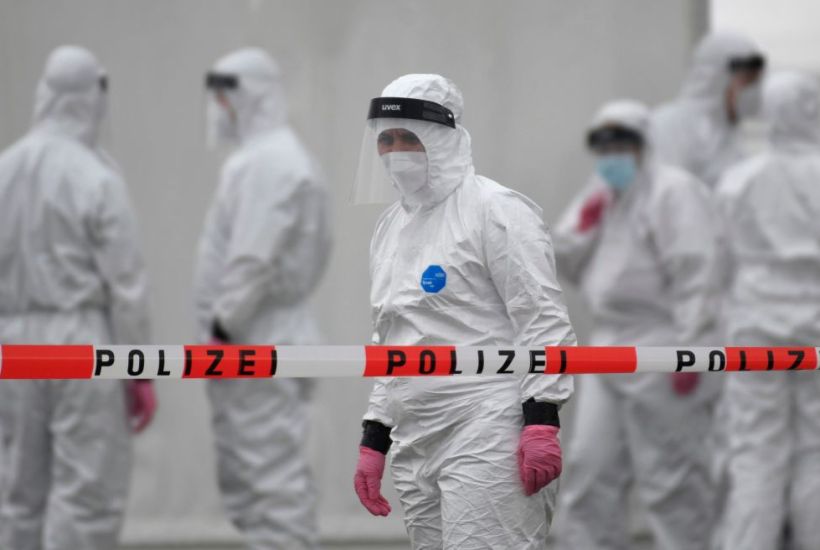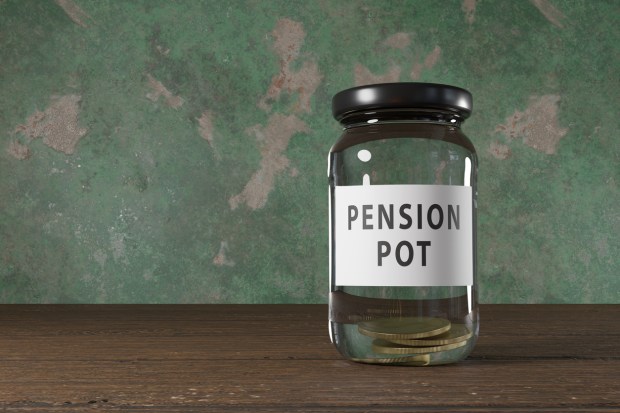Germany’s ‘lockdown light’ strategy has failed: the country, which has been widely-praised for its response to the pandemic, recorded a daily record of 952 coronavirus-related deaths last night. After experiencing relatively low numbers of infections and fatalities compared with other European countries in the spring, Germany has plunged into a crisis.
It’s true that Wednesday’s number was artificially inflated by delayed reporting of data from the state of Saxony, one of the coronavirus hotspots in Germany. But even without the 153 coronavirus-related deaths recorded in that region, the grim tally marks a new peak. The Robert Koch Institute, the national disease control agency, also reported 27,728 new infections on Wednesday, a 33 per cent rise on the same day last week. The total number of infections in Germany stands at 1,379,238, with just over one million having recovered from the virus.
The high infection and death rates in recent weeks have made politicians gravely worried. In November, Germany’s federal government and 16 state governments attempted to combat the spread of the virus with what has been known as a ‘lockdown light’. This meant that restaurants and bars had to close while many other public spaces remained open. Yet with this approach appearing to yield little benefit in preventing a spike in infections, the country has now taken a tougher line: lockdown restrictions have been introduced and will stay in place at least until 10 January.
The restrictions include the closure of many retailers, as only supermarkets, grocery stores, pharmacies and other essential stores remain open. Christmas tree vendors are allowed to continue trading, while bookstores can offer ‘click-and-collect’ services. Schools switched to online learning for the last three days of term from Wednesday, while most nurseries offered care only for children of parents who could prove it was vital. Restrictions on social gatherings will be relaxed from 24-26 December, allowing each household to be visited by four family members above the age of 14.
While Germans are understandably unhappy about yet another hard lockdown, many believe that the restrictions are necessary to get rid of the virus once and for all. What fuels optimism is this week’s announcement that the European Medicines Agency (EMA) had brought forward its decision day for the BioNTech/Pfizer vaccine to 21 December. The EU had come under increasing pressure to approve the vaccine, following emergency approvals from the UK and the US earlier this month. In addition to the BioNTech/Pfizer vaccine, the EU has signed contracts with AstraZeneca, CureVac, Johnson & Johnson, Moderna and Sanofi-GlaxoSmithKline. If all of these vaccines are approved, that would give the European Union up to two billion doses for 450 million residents.
These breakthroughs give Germans, as with other Europeans, hope that the lockdown will be over soon. But the German federal government has tried to dampen the euphoria. Health minister Jens Spahn said earlier this week that some restrictions would need to stay in place beyond 10 January, even once people were being vaccinated. Spahn, who is a leading figure in Angela Merkel’s Christian Democratic party, is hopeful that there would be a gradual return to the ‘normal’ from this summer. However, the end of all coronavirus-related restrictions is not in sight. Christmas in Germany this year will be very different.
Got something to add? Join the discussion and comment below.
Get 10 issues for just $10
Subscribe to The Spectator Australia today for the next 10 magazine issues, plus full online access, for just $10.




















Comments
Don't miss out
Join the conversation with other Spectator Australia readers. Subscribe to leave a comment.
SUBSCRIBEAlready a subscriber? Log in